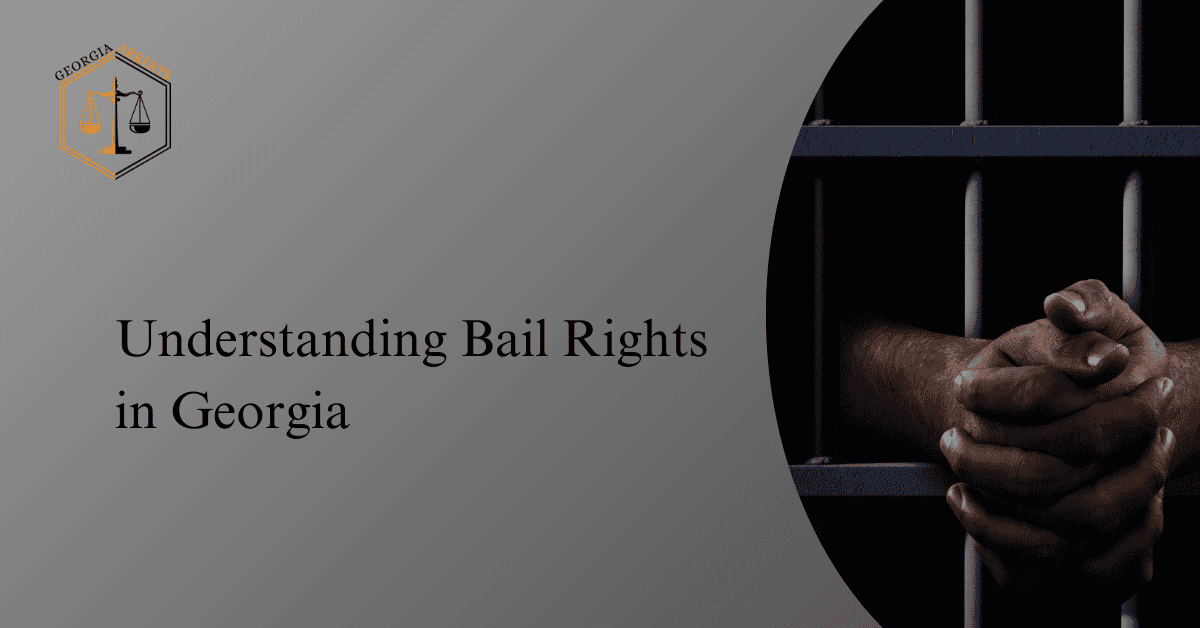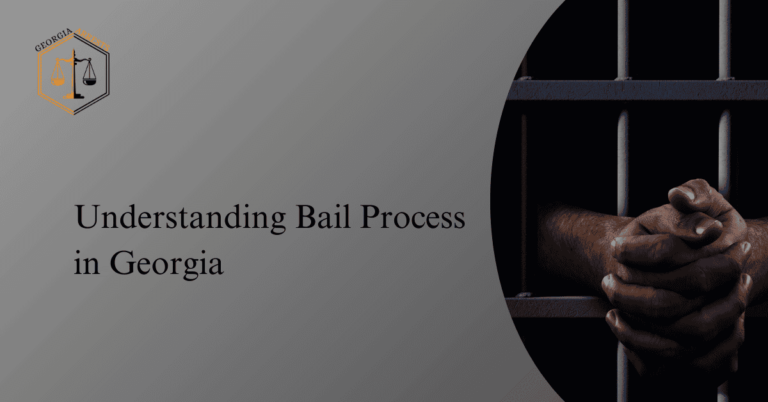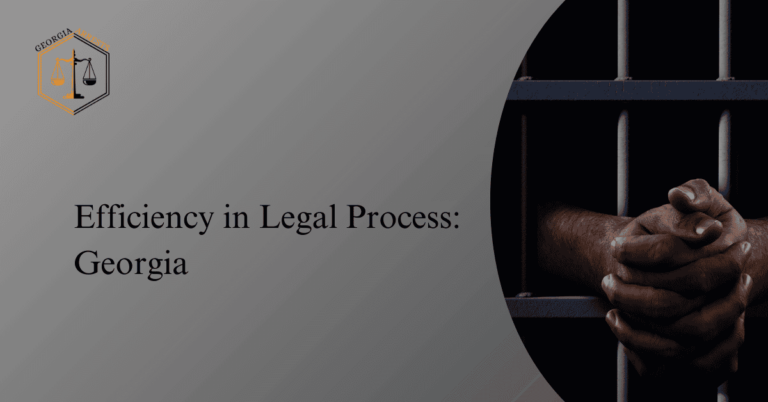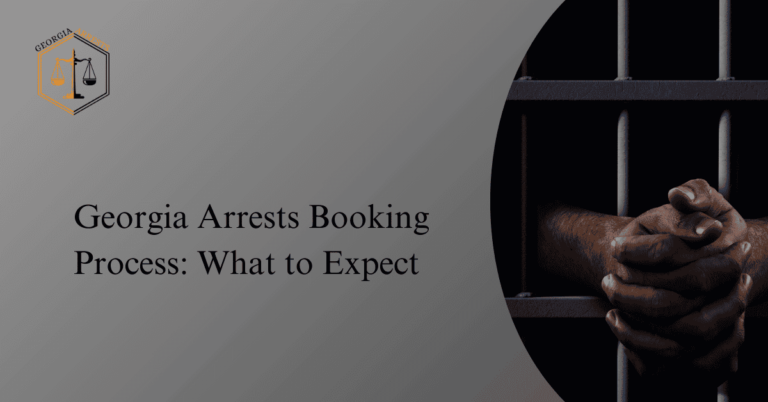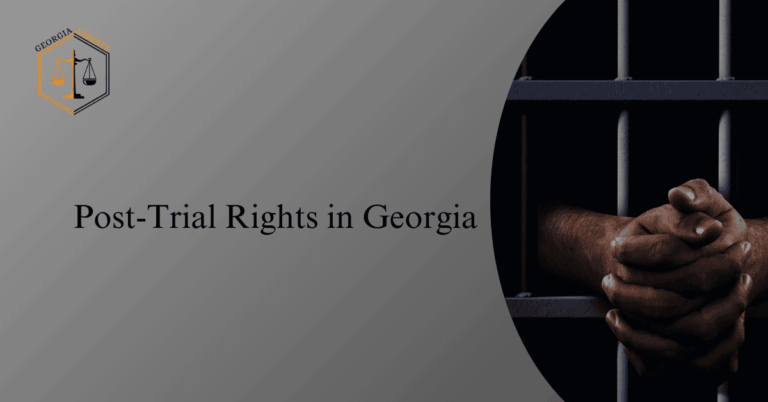Understanding Bail Rights in Georgia
When it comes to bail rights in Georgia, it is essential to have a clear understanding of the legal processes surrounding this crucial aspect of the justice system. Individuals facing legal issues in Georgia need to be aware of their rights when it comes to bail, as it can significantly impact their freedom during pending legal proceedings. From the bail amount set by the court to the conditions that must be met for release, having a grasp of bail rights is vital for anyone navigating the legal system in Georgia.
Being informed about bail rights in Georgia empowers individuals to make informed decisions about their legal situation and ensures that they are aware of their options. Whether it’s understanding the different types of bail available or knowing how to request a bail hearing, having knowledge about bail rights can make a significant difference in how a legal case unfolds. By knowing your rights and responsibilities regarding bail in Georgia, you can navigate the legal process with confidence and clarity.
Bail Rights in Georgia
Bail rights in Georgia ensure that individuals accused of crimes have the opportunity to secure their release from custody pending trial. These rights are fundamental to the presumption of innocence and due process, allowing defendants to continue their lives outside of jail while awaiting legal proceedings. Understanding bail rights empowers individuals to navigate the legal system effectively and seek fair treatment under the law.
Importance of Knowing Your Bail Rights
Knowing your bail rights in Georgia is crucial for anyone who may find themselves in a situation where they need to post bail. Understanding the legal procedures and requirements can help individuals navigate the bail process with confidence. By being informed about your rights, you can ensure that you are treated fairly and that your freedom is protected.
Impact of Bail Amount on Freedom
The bail amount set by the court can have a significant impact on an individual’s freedom. A high bail amount may make it difficult for someone to secure their release, while a reasonable bail amount allows them to await trial outside of jail. It is important to understand how bail amounts are determined and what factors can influence the decision.
Conditions for Release and Legal Obligations
When posting bail in Georgia, individuals are required to adhere to specific conditions set by the court. These conditions may include staying within the state, avoiding contact with certain individuals, or attending all court hearings. Failure to comply with these conditions can result in serious consequences.
Types of Bail Available in Georgia
There are several types of bail available in Georgia, including cash bail, property bond, and surety bond. Each type of bail has its own requirements and implications, so it is important to understand the differences between them. Knowing how to request a bail hearing and the role of bail bonds can help individuals navigate the bail process effectively.
Request a Bail Hearing
If you believe that your bail amount is unfairly high or that you are eligible for a lower bail amount, you have the right to request a bail hearing in Georgia. During this hearing, you can present evidence and arguments to support your case and potentially have your bail amount reduced.
Role of Bail Bonds in the Process
Bail bonds play a crucial role in the bail process in Georgia. A bail bond is a financial guarantee that ensures the defendant will appear in court as required. By working with a bail bondsman, individuals can secure their release from jail without having to pay the full bail amount upfront.
Legal Procedures and Court Requirements
The legal procedures and court requirements related to bail in Georgia is essential for anyone involved in the criminal justice system. Individuals on bail have certain responsibilities to fulfill, and failing to meet these obligations can have serious consequences.
Responsibilities During Bail Period
While on bail in Georgia, individuals must comply with all court requirements and conditions of release. This may include attending all court hearings, refraining from illegal activities, and following any restrictions set by the court. Failing to meet these responsibilities can result in revocation of bail.
Consequences of Violating Bail Conditions
Violating bail conditions in Georgia can have serious consequences, including revocation of bail, additional criminal charges, and even imprisonment. It is important for individuals on bail to understand the implications of non-compliance and to take their responsibilities seriously.
Frequently Asked Questions
Our FAQ section aims to provide detailed information on Understanding Bail Rights in Georgia to enhance your knowledge and address common queries.
What are bail rights?
Bail rights pertain to the legal right of an individual who has been arrested to be released from custody pending trial, usually upon payment of a set amount of money or other conditions set by the court.
How does bail work in Georgia?
In Georgia, when a person is arrested, they are taken into custody and booked. After booking, a judge will determine if the person is eligible for bail and if so, set the bail amount. The individual can then pay the bail or seek assistance from a bail bond agent to secure their release.
What factors determine the bail amount?
The bail amount in Georgia is typically determined based on the severity of the alleged crime, the defendant’s criminal history, flight risk, ties to the community, and other relevant factors. The judge will consider these factors to set a fair and reasonable bail amount.
Can bail be denied in Georgia?
Yes, bail can be denied in Georgia in certain circumstances such as when the defendant poses a flight risk, is a danger to the community, or has a history of failing to appear in court. The judge will consider these factors when deciding whether to grant bail.
What happens if bail is not posted?
If bail is not posted, the individual will remain in custody until their court date. They will have to stay in jail until their case is resolved, which can sometimes take weeks or even months.
Can bail be revoked in Georgia?
Yes, bail can be revoked in Georgia if the defendant violates the conditions of their release, such as committing another crime, failing to appear in court, or violating a restraining order. In such cases, the court may revoke bail and detain the individual until their trial.

